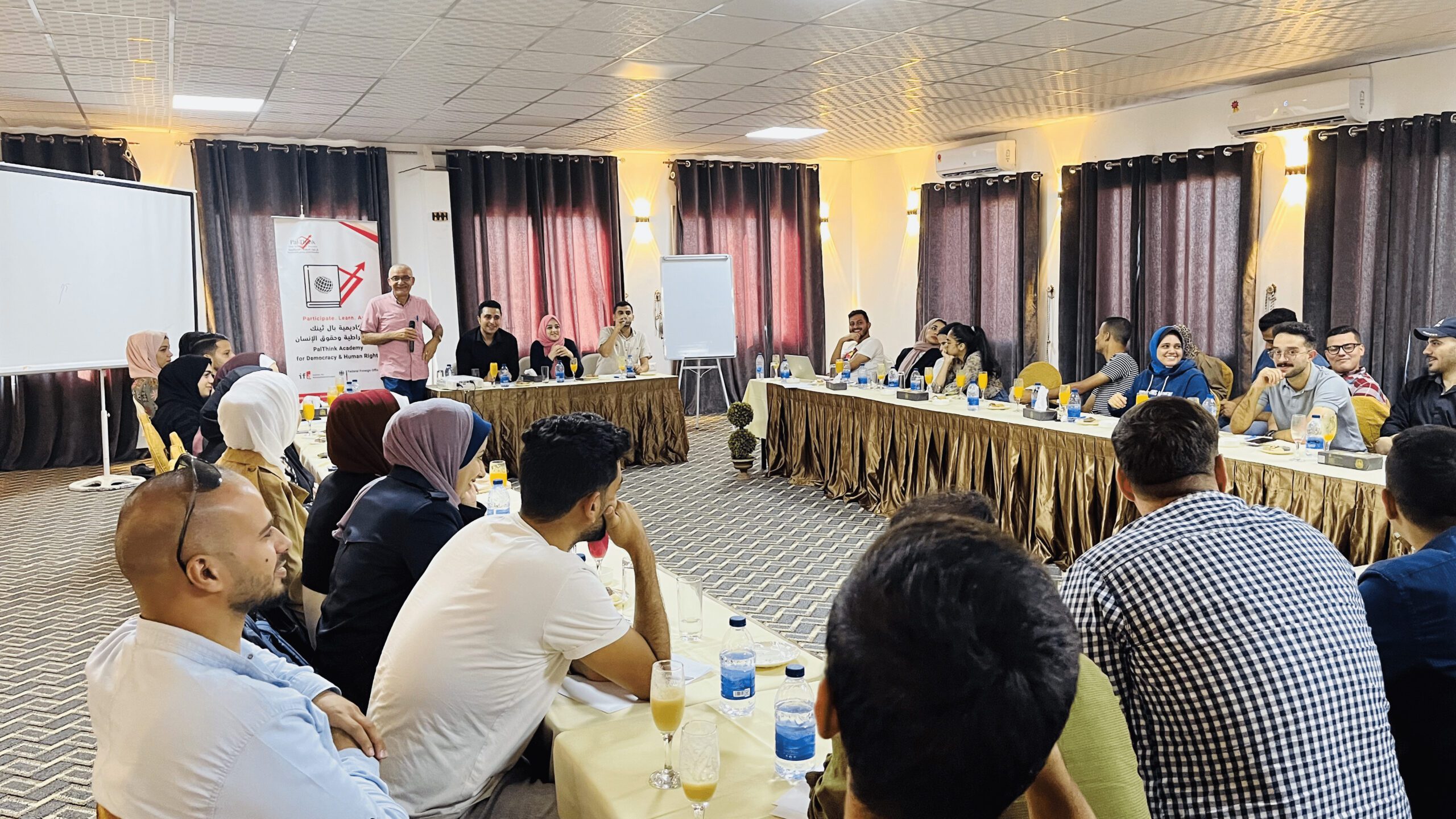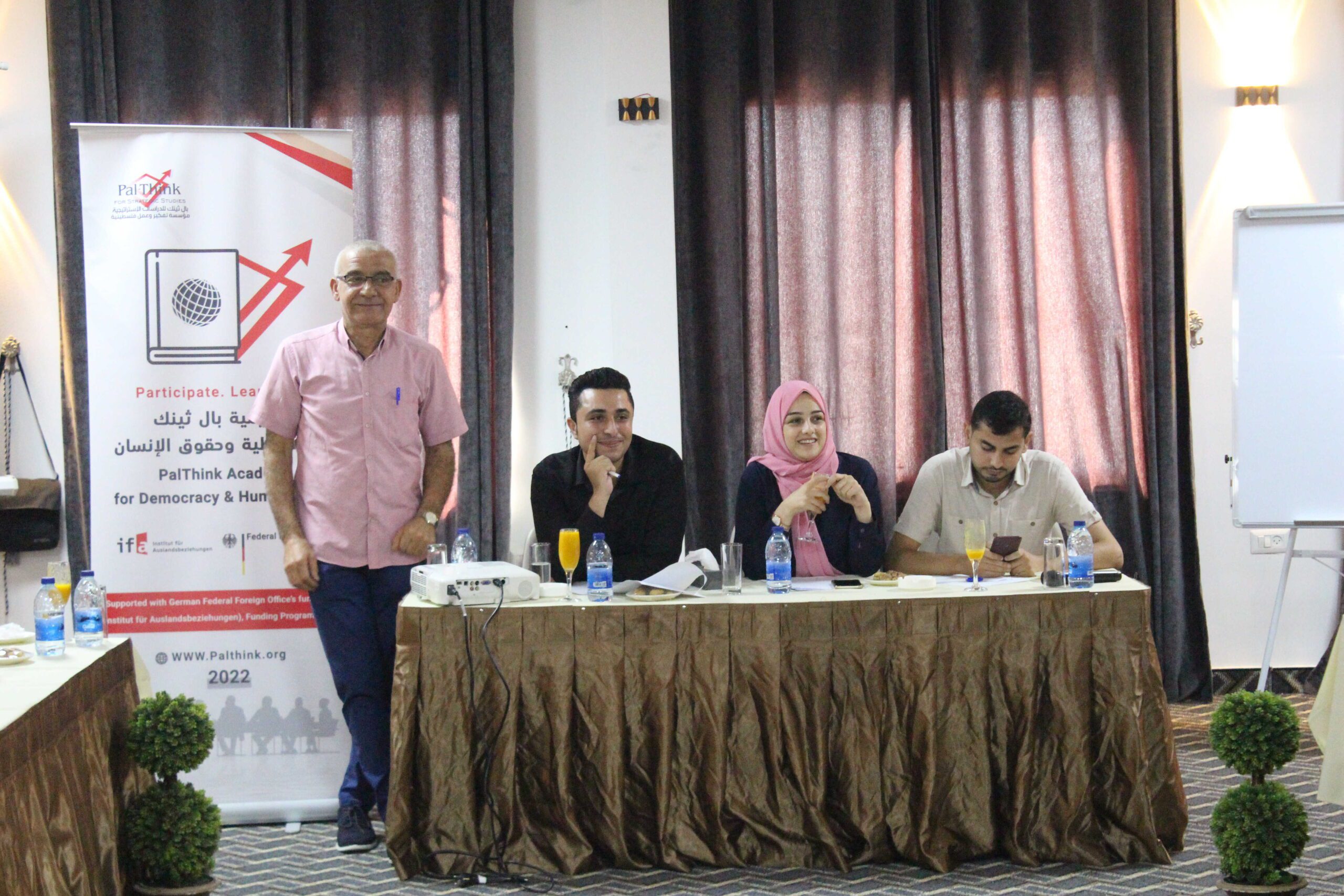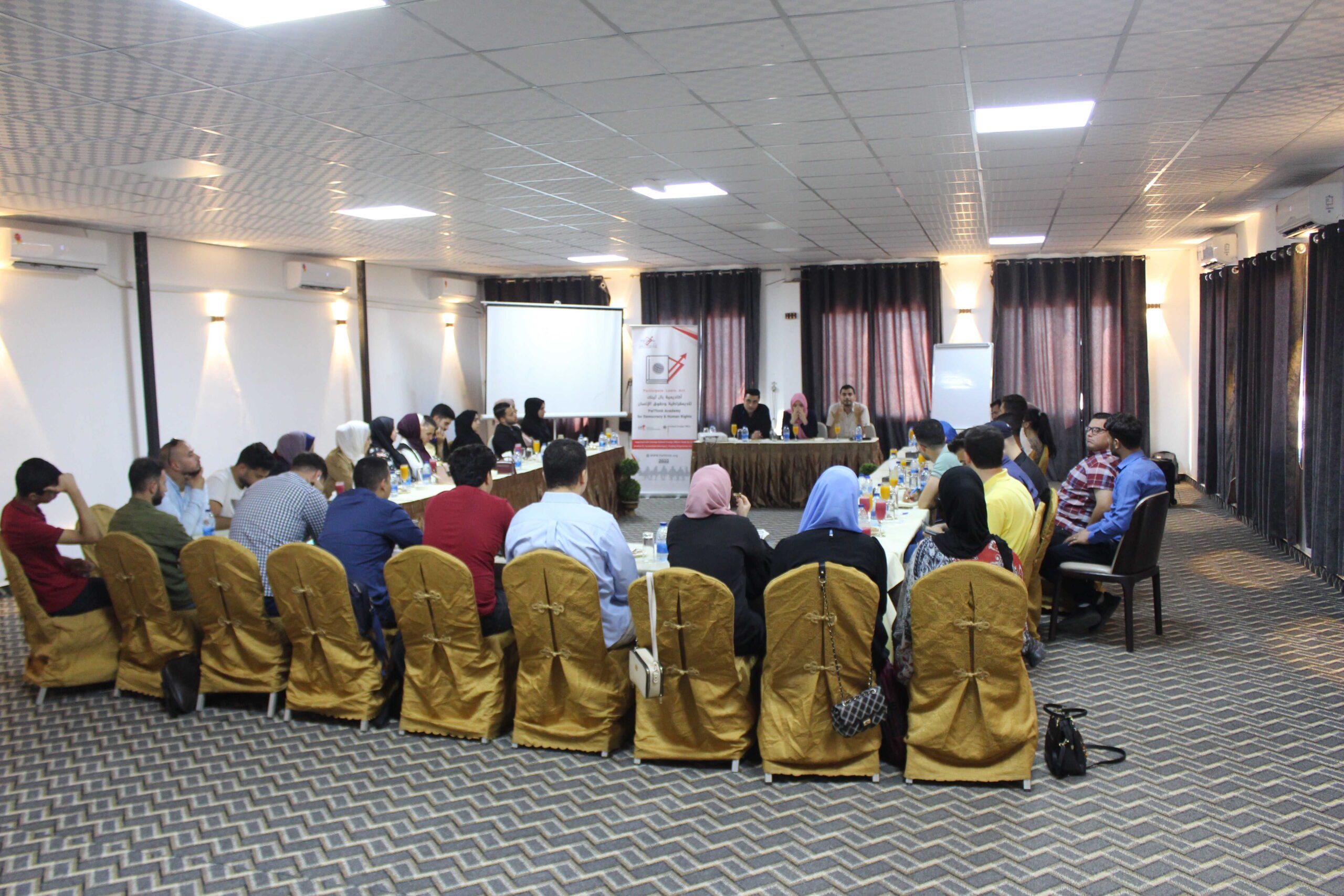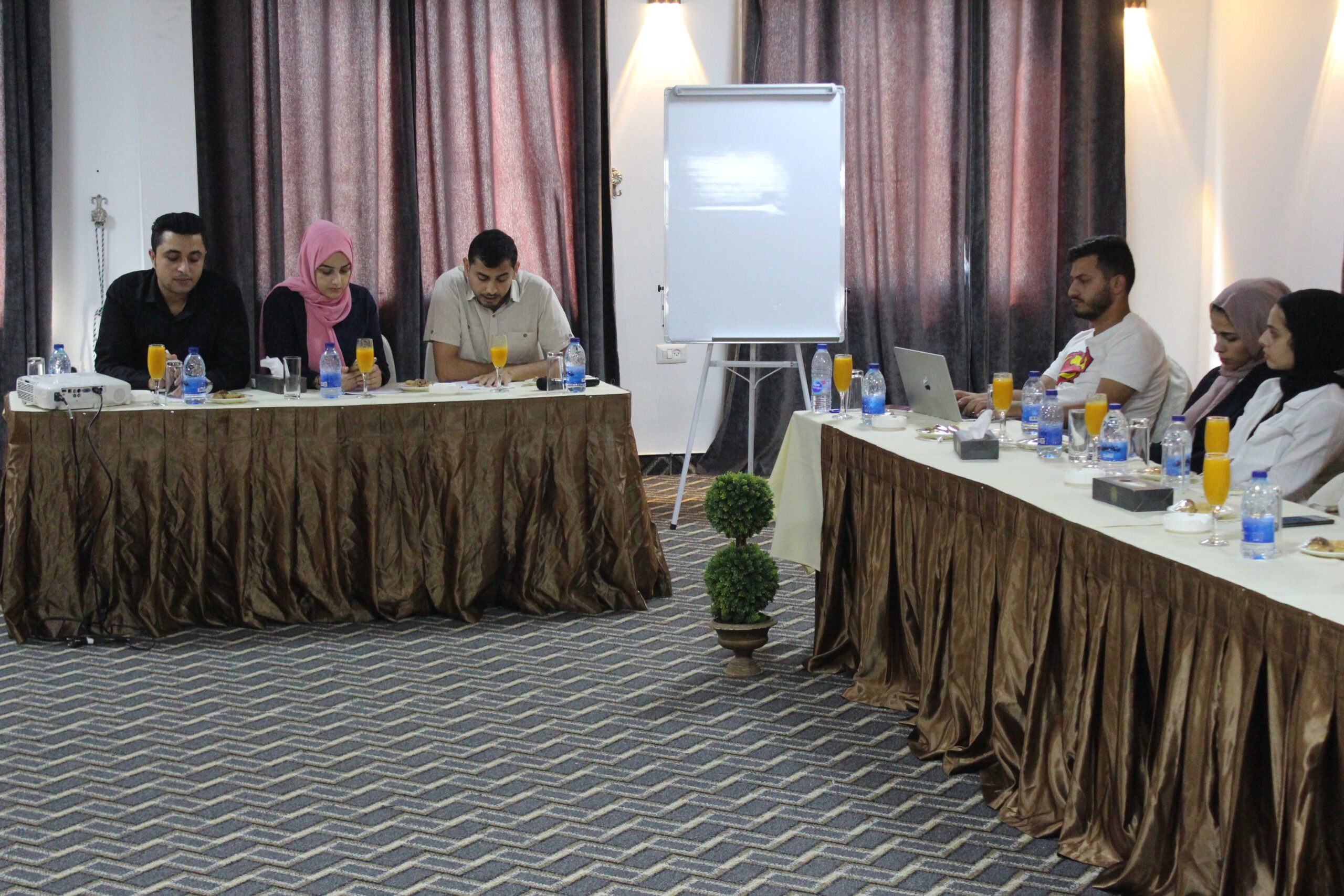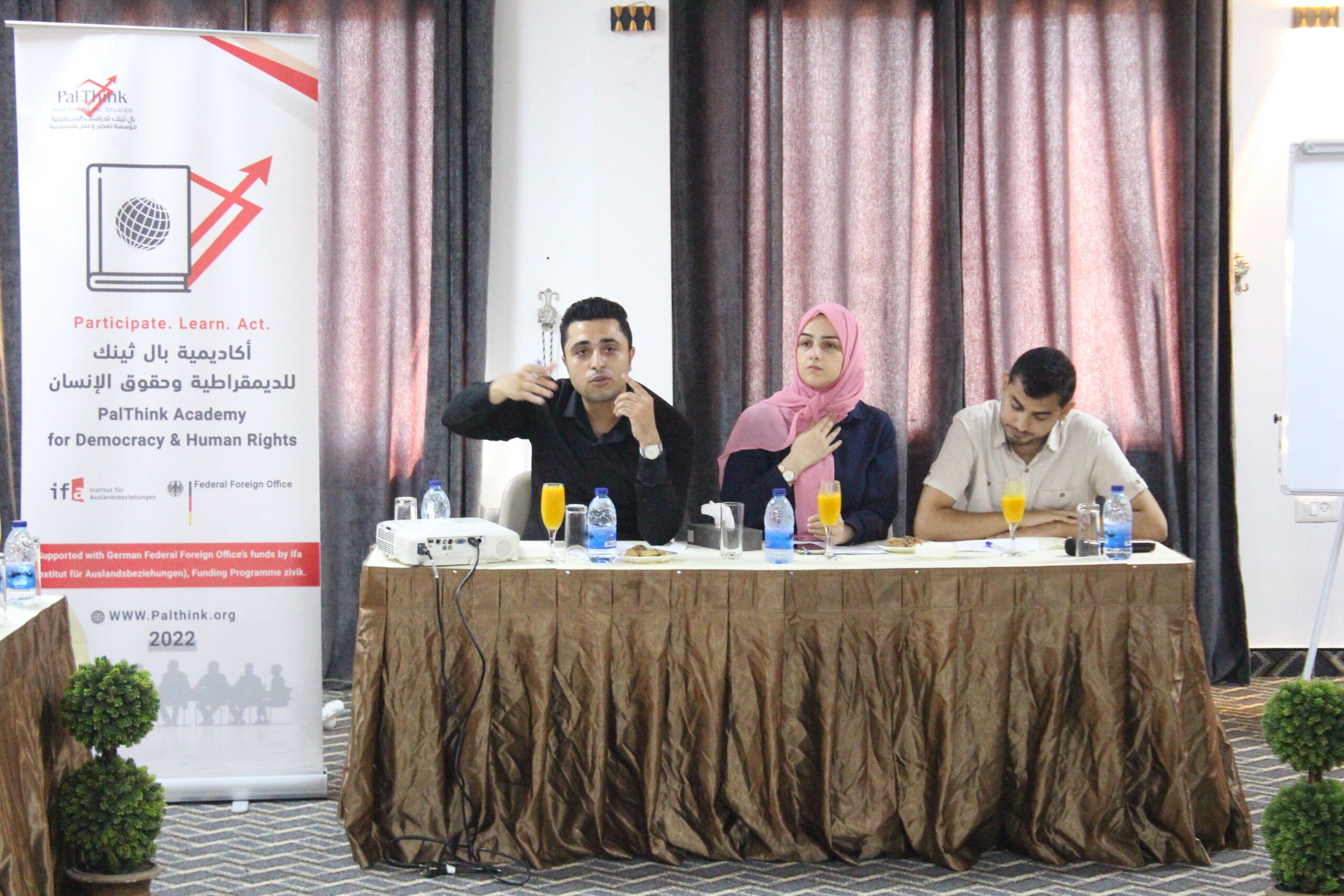The Myth Of Progress And Backwardness: PalThink holds book-discussion The Myth Of Progress And Backwardness: PalThink holds book-discussion sessionsession
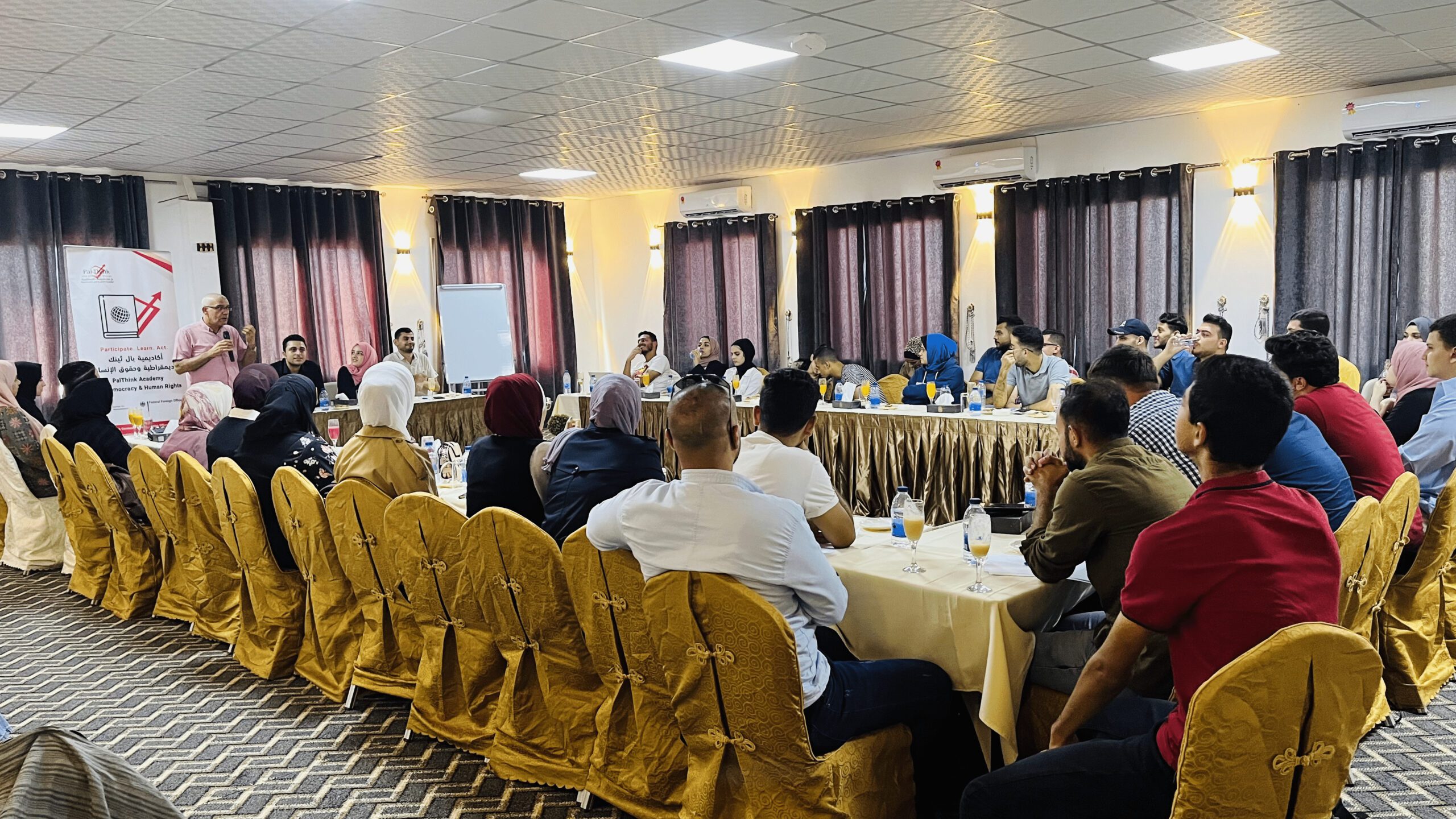
In continuation of its efforts to raise youth’s awareness of contemporary intellectual issues, PalThink for Strategic Studies held a book-discussion session of The Myth of Progress and Backwardness by thinker Galal Amin, as part of the PalThink Academy for Democracy and Human Rights project activities, supported by Institut für Auslandsbeziehungen (ifa)’s Zivik Funding Programme.
Attended by more than 55 participants, the meeting was opened by Yahya Qaoud, a political science and public policies researcher at PalThink, who welcomed the attendees and said that his foundation continues to implement awareness-raising activities for its deeply rooted belief in the importance of supporting young people and enhancing their societal role.
For his part, PalThink’s Director, Omar Shaaban, said that Galal Amin is a very well-known Egyptian philosopher who wrote dozens of books and came up with development theories.
“PalThink works with all segments of Palestinian society, and its activities are aimed at raising youth’s awareness through book and film discussions and research because democracy can only be achieved through knowledge and awareness raising,” Shaaban said.
The session was moderated by member of the Academy May Al-Sous, who introduced the Egyptian writer and said that The Myth of Progress and Backwardness is the most important among all of his works because it provides a deep reading of society.
Academy members Ashraf Sukkar and Osama Naim presented a summary of the book and said that the writer highlights many myths that many consider being true, such as the future of any nation must be better than its past.
They said that what Amin means by progress is not any partial progress in specific areas, but comprehensive progress and that one of the negative consequences of the misconceptions around progress is the emergence of phenomena such as cultural cringe.
The writer refuses to divide human well-being into economic well-being, cultural well-being, political well-being, etc. because man cannot be divided even at the level of psychoanalysis, the two presenters said.
They added that Amin clarifies the essential difference between human rights and human needs, as needs are obvious, such as food, clothing, shelter, and other necessities of life while rights are the acknowledgment of a certain group of people (a nation, a tribe, or even a family) that a certain desire or need must be satisfied.
The writer explains the difference between the concepts of reform and modernization and rejects the idea that they are synonymous, attributing this idea to the firm belief that human history is in continuous progress, but that does not entail betterment, the two presenters said.
During the discussion, the attendees talked about several issues including the differing criteria of progress or backwardness from time to time, the difference between the definition of right and need, the fact that a right can be reclaimed after a struggle, and the importance of linking these two concepts to secure human needs.
The attendees also talked about social media and its benefits and disadvantages and the extent of its impact on us and our influence on it.
They discussed the role of women’s rights institutions in the development of society as a whole, the cultural cringe, the role of Arab cadres in development, and the proposed visions for changing the reading habits of Arab society.


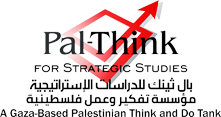
 Home
Home Literature
Literature Studies
Studies Reports
Reports Book
Book International Conventions
International Conventions Links
Links Academy News
Academy News Opportunities
Opportunities Networking
Networking Your opinion
Your opinion